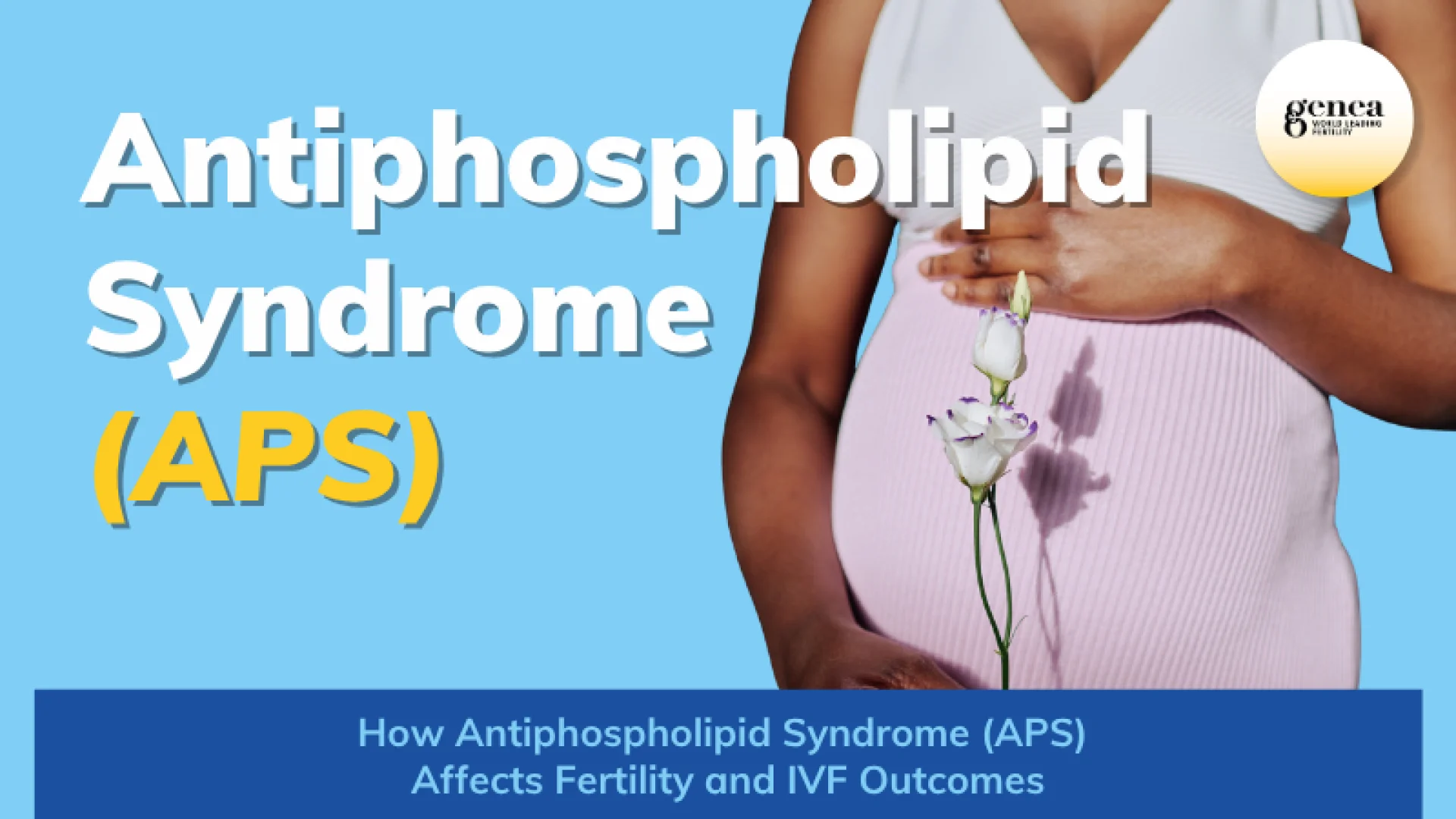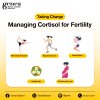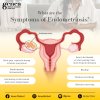How Antiphospholipid Syndrome (APS) Affects Fertility and IVF Outcomes

Getting pregnant should be simple, but for some couples, it's not. There might be a reason you haven't heard of yet something called APS. Let's talk about what it is and how it might affect your chances of having a baby.
What is Antiphospholipid Syndrome (APS)?
Imagine your blood as a flowing river that needs to move smoothly through your body's pathways. In Antiphospholipid Syndrome (APS), your immune system mistakenly produces antibodies that make your blood "stickier" than it should be.
This increased stickiness can cause small blood clots to form in unexpected places, including the tiny blood vessels that are crucial for a healthy pregnancy.
APS is an autoimmune condition where the body's defense system turns against itself, specifically targeting phospholipids important components found in cell membranes. Think of phospholipids as the "walls" of your cells. When antibodies attack these walls, it can disrupt normal blood flow and cellular function throughout the body.
APS and Reproductive Challenges
For couples trying to conceive, APS can create several roadblocks on their journey to parenthood. The condition primarily affects pregnancy in two critical ways:
- Implantation Difficulties: When an embryo tries to implant in the uterine wall, it needs a rich blood supply to establish a connection with the mother's circulatory system. APS is associated with increased implantation failure following in vitro fertilization, making it harder for embryos to successfully attach and begin developing.
- Pregnancy Loss: Even if implantation occurs successfully, pregnant women with antiphospholipid syndrome present a greater risk of miscarriage and intrauterine growth restriction, since clots may form in the placenta. The placenta acts like a lifeline between mother and baby when blood clots form there, the developing baby may not receive adequate nutrition and oxygen.
Why Early Diagnosis of APS Matters
The encouraging news is that knowledge is power when it comes to APS. Early diagnosis can significantly improve outcomes for couples facing fertility challenges.
More than 80% of women with APS will have live newborns and approximately 60% will not have any pregnancy complications when properly managed.
Early detection allows medical professionals to:
- Implement preventive treatments before conception
- Monitor pregnancies more closely
- Adjust IVF protocols when necessary
- Provide appropriate medication to reduce clotting risks
When you know what challenges might arise, you can prepare accordingly and still have a successful outcome.
Could You Have APS Without Knowing It?
Antiphospholipid Syndrome can often go undetectedespecially in people who appear otherwise healthy. Many individuals dont realize they have APS until they experience recurrent miscarriages, failed IVF attempts, or other unexplained fertility issues.
Because APS doesn't always cause obvious symptoms outside of pregnancy, it may remain hidden for years. That's why fertility specialists often recommend testing for APS in cases of repeated pregnancy loss or when other causes of infertility have been ruled out.
Talk to a Specialist at Genea Thailand

At Genea Thailand, our fertility specialists understand that every couple's journey is unique, especially when autoimmune conditions like APS are involved. Our comprehensive approach includes thorough testing for conditions that may impact fertility and pregnancy outcomes.
Our experienced team can help you navigate the complexities of APS and fertility by providing personalized treatment plans that address your specific needs. We believe that with proper medical support and monitoring, many couples with APS can achieve their dream of having a healthy baby.
If you've experienced recurrent pregnancy loss, failed IVF cycles, or have been diagnosed with APS, don't lose hope. Our specialists are here to guide you through every step of your fertility journey with compassion, expertise, and the latest medical advances.
Contact Genea Thailand today to schedule a consultation and take the first step toward understanding how APS may be affecting your fertility because every family deserves the chance to grow.


